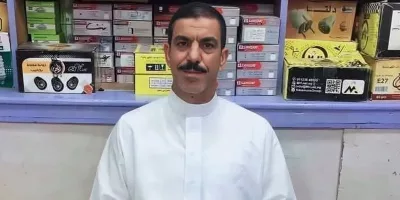We, the undersigned Egyptian rights groups, reject the unjust verdicts handed to 31 people on Sunday, including prison sentences against human rights defenders and lawyers.
The rulings issued were in connection with Case No. 703 of 2021, New Cairo Criminal Court, registered under No. 1552 of 2018 Supreme State Security, and No. 1 of 2021 Emergency State Security.
The first (terrorism) circuit of the State Security Criminal Court, held in the Badr Prison Complex, sentenced three human rights lawyers, Mohamed Abu Horaira, Ezzat Ghoneim, Tariq Al-Silkawi, to 15 years in prison. It also sentenced human rights activist Aisha Al-Shater to 10 years in prison, and the lawyer and human rights defender Hoda Abdel Moneim, a former member of the National Council for Human Rights, to 5 years in prison.
The court also sentenced to life imprisonment (25 years) the following defendants: Ibrahim Al-Sayyid Muhammad Abdo Atta, Muhammad Mahmoud Muhammad Nasrallah, Hashem Muhammad Muhammad Farraj, Mahmoud Hussein Ahmed Hassan, Muhammad Abdel-Wahhab Abdel-Fattah, Ahmed Salah El-Din Ahmed Talaat, Hajar Khaled Fares El-Sayed, Ashraf Refaat Abd al-Hamid al-Zayyat, al-Mu’tasim Billah Muhammad Abd al-Jawad, Ibrahim Ramadan Abd al-Fattah, Abd al-Rahim Muhammad Abd al-Rahim, Fikri Muhammad Fikri Abd al-Halim, Suha Salama Omar al-Sheikh, Muhammad Saeed al-Shimi Ali, Israa Kamal al-Din Muhammad Attia, Ahmed Abd al-Basit Muhammad Muhammad, And Muhammad Abd al-Rahim Muhammad Abd al-Rahim.
The following people were sentenced to 15 years of rigorous imprisonment: Ahmed Ismail Hassan Al-Hudhaibi, Osama Ibrahim Ahmed Marei, Osama Mabrouk Musa Muhammad, and Muhammad Abd al-Sattar Muhammad Hassan, and the following to 10 years of rigorous imprisonment: Muhammad Ismail Hassan Al-Hudhaibi, Somaya Muhammad Nasif Rushdi, and Bahaa Muhammad Odeh.
The court also handed a 5-year rigorous imprisonment to Ahmed Maatouq Salam, and acquitted Marwa Madbouly Ahmed, while placing the convicts under police surveillance for a period of five years after the end of their sentences.
The undersigned organizations believe that the Egyptian authorities’ actions contradict their statements about respect for civic space, freedom of expression, and freedom of association, and that the national strategy for human rights launched by President Sisi is propaganda by the Egyptian regime to improve its face before the international community. The organizations explained that the rulings were issued by an exceptional court, whose verdicts are final and irrevocable, meaning that they lack the standards of fair trials, and detract from the convicts’ right to litigation by abolishing a degree of litigation, which is the Court of Cassation. Likewise, the holding of the trial inside the Badr Prison Complex is an attack on the independence of the judiciary, and evidence of the transgression of the executive authority over the judiciary. It also does not provide the defendants with the right to litigate before a normal judge. The organizations also pointed out that the defendants in that case were subjected to several violations including physical torture, enforced disappearance, and medical negligence that led to severe health deterioration for a number of them, and rotation of detention.
According to the case files, 14 of the 31 defendants were subjected to physical or psychological torture, and the majority of them were subjected to both types of torture. Electrocution was used on most of the defendants (women and men), and electrocution was done on sensitive areas of the body. Hanging for prolonged periods in stress positions was one of the methods used on them.
In addition, 15 defendants in the case were subjected to enforced disappearance and were detained separately from their lawyers or their families in an unknown location since their arrest. Seven of them were subject to a detention order in accordance with Article 40 of the Anti-Terrorism Law No. 94 of 2015, and the rest had their arrest warrant reports forged by the police officers in charge of them, who registered different dates for their arrest from what the defendants proved in their statements in the investigations. Their defense even presented telegrams in the investigation sessions to prove the actual date of their arrest without the Public Prosecution paying any attention to that.
They were also detained after the preliminary investigations in the case at the headquarters of the National Security, which are unofficial detention facilities, and the Public Prosecution did not pay any attention to that either.
According to the statements of some of the accused in the investigation papers during the investigation sessions, whether in the first or subsequent interrogation sessions, they proved their need to obtain appropriate health care, and some have even proven that their health has deteriorated due to the poor conditions they face in detention facilities, including the human rights lawyer Hoda Abdel Moneim.
The case papers showed that 11 of the defendants had been held in pre-trial detention for periods exceeding three years, and the lawyer Ezzat Ghoneim had his case recycled, exceeding a four-year pre-trial detention period since his arrest.
The 31 defendants in the case were also placed on terrorism lists in accordance with Law No. 8 of 2015, without any conviction, investigations, or presentation of a defense for that.
The undersigned organizations call on Egyptian authorities to stop implementing these unfair sentences, retry the defendants before their natural judge, and stop rulings issued by exceptional courts (Terrorism, State Security, and military courts).
The organizations also call on the authorities to stop targeting civil society and imprisoning human rights defenders, allow the presence of civic space in the country, and open dialogue with human rights organizations and activists instead of targeting them.
The organizations also stress that these sentences are a clear message from the Egyptian authorities to the international community that all the rhetoric about the so-called inclusive national dialogue are mere slogans that have been destroyed by these unfair prison sentences.
Signatory organizations:
The Egyptian Coordination for Rights and Freedoms
Committee for Justice
Al Shehab for Human Rights
The Egyptian Network for Human Rights
Haqqohom
Najda for Human Rights
We Record
Human Rights Monitor
Jiwar






